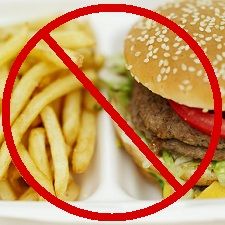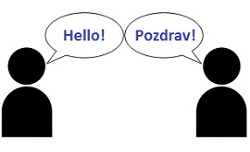- Home
- Better Memory
- Free Memory Tips
- December 2014 Issue
Free Memory Tips, December 2014 Issue
Below is the December 2014 issue of Free Memory Tips. To learn more about this free email newsletter, or to start receiving it, please visit the Subscription Page. I send out the newsletter about once a month. You can unsubscribe at any time.

Welcome to the DECEMBER 2014 issue of my free Memory Tips email newsletter. Below are powerful strategies for improving your memory. Ready to boost your brain power?
Below are powerful strategies for improving your memory. Plus I've included links to free online brain games that can strengthen your thinking skills.
In this issue:
Tip of the Tongue, and Why We Forget
Trans Fat Linked to Memory Decline
Learning a Second Language Boosts Brainpower
FREE Brain Games: Improve PROBLEM SOLVING Skills
If you like this newsletter, "pay it forward" by sending this to a friend. If someone did forward this to you, and if you like what you read, please subscribe by visiting the Memory Tips subscription page.
My goal is to help you learn faster and remember more. That's why I created Memory-Improvement-Tips.com and this email newsletter.
The secret to a more powerful brain is two-fold: 1) improve your brain health, and 2) learn memory techniques. This can lead to more success and fulfillment in life!
Tip of the Tongue, and Why We Forget
"What's the name of that restaurant again? It's on the tip of my tongue..."

Memorable memory cue
You've experienced that feeling. You know the information but can't seem to bring it to the front of your mind. That's the "tip of the tongue" phenomenon, and it is a failure of memory retrieval.
To remember anything, your brain must learn it, retain it for awhile, and then recall it. Those are separate processes. As brain researchers have found, most failure of remembering happens in the last stage, the recall stage.
How can you remember more? By creating mental cues at the time of learning that will help you recall the fact later. Having the mental cue or reminder available can greatly increase your chances of remembering.
Here's a simple example. You eat at a new restaurant and want to be sure you remember the name later.
Suppose the restaurant is The Macaroni Grill. To create a mental cue for the name, call to mind the dining area where you just ate. Do this right after you leave the restaurant.
Now use your creative imagination to visualize the following crazy image: Giant macaroni noodle characters eating at the restaurant's tables instead of people.
See this bizarre image clearly in your mind, with as much detail as you can muster.
Here's how this exercise will help during retrieval. The next time someone asks you where you ate recently, first recall the main dining area in your mind's eye.
As you do this, the image of giant macaroni noodle customers seated at the tables should pop into your mind. Those macaroni characters are your "cue" (or clue) about the name of the restaurant.
Aha! The Macaroni Grill.
According to researchers, most forgetting is "cue-dependent" forgetting. A cue is like the label on a folder. It provides the hook for you to fish the fact from your memory.
A cue is a clue, a reminder.
Consider as an analogy the humble filing cabinet. Searching for a particular document is easy in a neatly organized filing cabinet. In each drawer, labels on the folders indicate where types of documents are filed.
Now imagine trying to locate the same document among thousands of papers tossed in a large box. This would take a long time. You might not even be able to find it in the mess.
To remember more, practice structuring your memory like a filing cabinet. Whenever you encounter a fact you want to remember, actively create a memory association.
One of the most effective association methods is to imagine a silly, bizarre, even impossible picture that connects the information you want to remember with details you know well. This technique is one of the most powerful memory tricks you will ever run across.
Trans Fat Linked to Memory Decline

You are supposed to eat healthy, but donuts and pizza and chips taste so good! Maybe so, but be forewarned: you may be setting yourself up for cognitive problems, including a worsening memory – sooner rather than later.
A study released in November 2014 by the American Heart Association concluded "trans fat consumption is adversely linked to memory sharpness in young to middle-aged men."
As reported by Science Daily,
Men under 45 years old who ate higher amounts of trans fats, which are found in processed foods, had significantly reduced ability to recall words.
What an awful indictment of these foods.
No one is saying you can't have a treat now and then. Almost every diet plan allows an occasional cheat meal.
But if you regularly consume trans fat in significant amounts, you may be seriously damaging your memory. Notice the participants in this study were under the age of 45. These folks were not that old.
The solution? Improve your diet by cutting back or eliminating trans fat. To help you get started, here are examples of some foods that are often high in trans fat that you might want to avoid or eat sparingly:
Donuts
French fries
Potato chips
Store-bought cake mix & frosting
Pancake & waffle mix
Margarine sticks
Battered or deep-fried foods, such as onion rings or fried chicken
Store-bought cookies and pies
Microwave popcorn
Meat sticks (such as Slim Jims)
Fast food "breakfast sandwiches"
Certain brands of crackers
Asian crunchy noodles and ramen noodles
Packaged pudding
Canned chili
Shortening
Non-dairy coffee creamer
Microwave dinners (check the nutrition label)
Cinnamon rolls & biscuits
Fast food restaurants used to be the worst culprits. But in recent years many including McDonald's, Burger King, Wendy's, and Dairy Queen have greatly reduced or eliminated trans fats from their menu.
Check the individual restaurant's nutrition guide chart before ordering. Be aware that local and independent restaurants may not have made the switch away from trans fats or provide nutrition charts.
For packaged foods, read the nutrition label and ingredients list. If you see "trans fat" greater than zero or any type of partially hydrogenated oil (another name for trans fat), consider steering clear.
Trans-fat foods may be yummy, but are they worth it? Not if you care about your long-term brain health.
Trans fat consumption can lead to severe medical conditions including clogged arteries and heart attacks. Now we know impaired memory may also be a negative result of eating them over the long term.
References:
1. American Heart Association. "Trans fat consumption linked to diminished memory in working-aged adults." ScienceDaily, 18 November 2014.
2. "9 Trans-Fat Laden Foods to Avoid." EverydayHealth.com
3. "The 22 Worst Foods for Trans Fats." Health.com
Learning a Second Language Boosts Brainpower

Many recent studies indicate learning a second language strengthens the brain in powerful ways. If you are interested in boosting your brainpower and have ever considered taking foreign-language classes, I say, "Why wait? Go for it!"
For example, a study by Penn State published in November 2014 found learning a new language "changes your brain network both structurally and functionally."
According to the lead investigator, becoming bilingual strengthens the language areas of the brain:
"Like physical exercise, the more you use specific areas of your brain, the more it grows and gets stronger."
In the study, subjects who succeeded in learning new foreign vocabulary had a more connected brain network than other participants. This effect was found regardless of the age of the learner.
A study in 2012, by Lund University in Sweden, measured growth of the brain in students enrolled in an intensive 13-month foreign language course.
As noted by researcher Johan Martensson,
"There is a lot to suggest that learning languages is a good way to keep the brain in shape."
If you are bilingual already, be sure to keep up your skills by speaking and writing both languages regularly. And if you've ever considered learning a second language, now may be the time to start.
Don't forget to use visualization methods to help you learn the vocabulary. Such memory techniques can speed the process of absorbing the language considerably.
If you've got the time and inclination, learn another language! Your brain will thank you for it.
References:
1. Ping Li, Jennifer Legault, Kaitlyn A. Litcofsky. Neuroplasticity as a function of second language learning: Anatomical changes in the human brain. Cortex, 2014; 58: 301 DOI: 10.1016/j.cortex.2014.05.001
2. Penn State. "Learning languages is a workout for brains, both young, old." ScienceDaily, 12 November 2014.
FREE Brain Games: PROBLEM SOLVING Skills
There are 254 free online brain games on my website, Memory-Improvement-Tips.com. You can play them online anytime. No restrictions, no logging in. Just pick a game, go to the game page, and start playing.
Below are links to three of the online games that train problem solving, a very important brain skill. Play them now to give your brain a boost.
Problems solving includes skills like logical reasoning, quantitative reasoning, and arithmetic.
Math Mountain. The Math Mountain game trains numerical reasoning and quick thinking. Solve math problems to get to the top of the mountain before your opponent does. The questions are multiple choice format. They involve various basic math operations including addition, subtraction, multiplication, and division.
Tom & Jerry Midnight Snack. This fun logic game trains logical reasoning and analytical ability. Help Jerry the Mouse find his way through a maze of traps while picking up yummy cheese snacks along the way. It's late at night, and Jerry is sleep walking. He needs your help, or he will never make it from one end of the room to the other!
Demolition City. This is a building demolition logic game. Set your charges carefully, then fire them to knock down the buildings. This game trains concentration and logical reasoning. This physics game has 20 levels of demolition fun. Start with Level 1 and work your way up through all the challenging levels.
That's all for now, and thanks for reading. For lots more tricks and strategies to improve your brain, visit the Get a Better Memory page on my website.
If you like the website, tell your friends and family about it. And please click the Facebook "Like" and Google +1 buttons on my site. Every vote of confidence helps. ![]()
Best regards,
Memory-Improvement-Tips.com
Home of over 200 free online brain games
Memory Tips newsletter Back Issues page: https://www.memory-improvement-tips.com/Free_Memory_Tips-backissues.html

Newest / Popular
Multiplayer
Board Games
Card & Tile
Concentration
Math / Memory
Puzzles A-M
Puzzles N-Z
Time Mgmt
Word Games
- Retro Flash -
Also:
Bubble Pop
• Solitaire
• Tetris
Checkers
• Mahjong Tiles
•Typing
No sign-up or log-in needed. Just go to a game page and start playing! ![]()
Free Printable Puzzles:
Sudoku • Crosswords • Word Search











